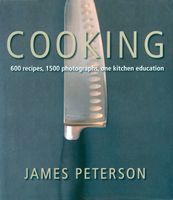Advertisement
Boiling Eggs
Published 2007
When boiling eggs, the trick is to stick to the same method and to learn exactly how long to cook hard-boiled eggs, soft-boiled eggs, and in-between eggs, what the French call oeufs mollet, to your liking. The best approach is to bring a pot of water to a rapid boil, put in the egg(s), maintain the water at a simmer, and watch the time. The reason for starting the eggs in boiling water is that the whites cook faster than the yolks. Most of us don’t mind a runny yolk, but a runny white is something else entirely. Certain variables will change the cooking times, such as whether the eggs are straight from the refrigerator (cold eggs take longer), the amount of boiling water per egg (if the amount is small, the eggs cool the water, slowing the cooking), and the altitude (the higher the altitude, the slower they cook). Start out using a quart of water or so per egg. The times given here are approximations that are likely to need adjusting and are based on putting eggs right out of the refrigerator into boiling water. If you want to prevent the shell from cracking, or at least make cracking less likely, insert a pin into the rounder end of the egg—this is the air sac—so the air is released as it expands with the heat, instead of pressing against the shell from the inside and cracking it. If you are making hard-boiled eggs or oeufs mollet eggs ahead of time, plunge them into cold water as soon as they are done to stop the cooking.


